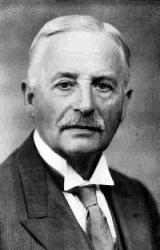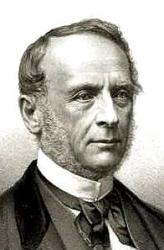Planning worship?
Check out our sister site, ZeteoSearch.org,
for 20+ additional resources related to your search.
- |
User Links
Search Results
Through centuries of sin and woe
Author: John Hampden Gurney Appears in 14 hymnals Used With Tune: SMILEY
Through centuries of sin and woe
Through centuries of sin and woe
Author: John Hampden Gurney Hymnal: Social Hymns of Brotherhood and Aspiration #47 (1914) Languages: English Tune Title: SMILEY
Through centuries of sin and woe
Through centuries of sin and woe
Author: John Hampden Gurney Hymnal: A Hundred Songs of God and His Kingdom #d86 (1940) Languages: English
Through centuries of sin and woe
Through centuries of sin and woe
Author: John Hampden Gurney Hymnal: Hymns of the Living Church #344 (1910) Languages: English Tune Title: GURNEY
Through centuries of sin and woe
John Hampden Gurney
1802 - 1862 Author of "Through centuries of sin and woe" in The Hymnal of Praise Gurney, John Hampden, M.A., eldest son of Sir John Gurney, a Baron of the Exchequer, was born in Serjeants’ Inn, London, Aug. 15, 1802, and educated at Trinity College, Cambridge, where he graduated in 1824. On taking Holy Orders he became Curate of Lutterworth (1827-1844), and subsequently Rector of St. Mary's, Marylebone, and Prebendary of St. Paul's Cathedral. He died in London, March 8, 1862. The Society for Promoting Christian Knowledge and other religious societies had his cordial sympathy, and received his active support. His publications include several small volumes in prose, and the following:—
(1) Church Psalmody; Hints for the improvement of a Collection of Hymns published by the Society for Promoting Christian Knowledge, 1853; (2) A Collection of Hymns for Public Worship. Lutterworth, 1838. This contains 300 hymns, and is known as his Lutterworth Collection; (3) Psalms and Hymns for Public Worship, selected for some of the Churches of Marylebone. London, 1851. This collection of 300 hymns and psalm versions is known as his Marylebone Collection. The Preface is signed by "Charles Baring," "Thomas Garnier," and "John Hampden Gurney," but the work was practically done by Gurney.
To the Lutterworth Collection 1838, he contributed :—
1. Earth to earth, and dust to dust. Burial.
2. Great King of nations, hear our prayer. Fast Day.
3. Lord, as to Thy dear Cross we flee. Lent.
4. Lord, at Thy word the constant sun. Harvest.
5. Saviour, what wealth was Thine. Passiontide.
6. Soon to the dust we speed. Heaven anticipated.
7. Thou God of mercy and of might. Good Friday.
8. Thou plenteous source of light and love. Advent.
9. Thou Who of old didst raise. Ascension.
10. Through centuries of sin and woe. For Peace.
11. We praise Thee, everlasting God. Te Deum.
These hymns were all signed "J. H. G.," and Nos. 1, 2, 3, 7, 8, 9 and 11, were repeated in the Marylebone Collection, 1851; and to these were added:—
12. Fair waved the golden corn. Child's Hymn.
13. How vast the debt we owe. Offertory.
14. Lord of the Harvest, Thee we hail. Harvest. This is No. 4 above rewritten.
15. Lord, we lift our eyes above. Love of Christ.
In addition to these we are specially indebted to Gurney for, "We saw Thee not when Thou didst come" (q.v.), and "Yes, God is good," &c. (q.v.). Several of the above-named hymns are in extensive use in Great Britain and America. The most popular are annotated under their respective first lines.
-- John Julian, Dictionary of Hymnology (1907)
John Hampden Gurney
Walter G. Alcock

1861 - 1947 Composer of "BRYANT" in Hymns for the Living Age Walter Galpin Alcock United Kingdom 1861-1947. Born at Edenbridge, Kent, England, the son of the superintendent of the Metropolitan Police Orphanage at Fortescue, Twickenham. He was musically inclined. He won a scholarship to the National Training School for Music at age 15. There, he studied composition with Arthur Sullivan and organ with Sir John Stainer. After several brief posts at Holy Trinity Sloan Street and St Margaret’s Westminster, he was appointed Organ Professor at the Royal College of Music, London, in 1893. That year he married Naomi Blanche Lucas, and they had six daughters and a son: Naomi Judith, Dorothy Grace, Constance Marjorie, Ruth Blanche, Lucy Rachel, Kathleen Stainer, and Richard. In 1896 he was assistant organist of Westminster Abbey and concurrently organist and master of the children of the Chapel Royal (1902-1916). He became organist and Master of the Choristers of Salisbury Cathedral (1916-1947). He also oversaw a strictly faithful restoration of the famous Father Willis organ. He would not allow parts of the organ being refurbished to leave the cathedral, lest an unauthorized tonal alteration might be made without his approval, but he did work with the grandson of Father Willis, Henry Willis III, to modernize the organ’s action. Alcock had the distinction of playing at the coronation of three kings: Edward VII (1902); George V (1911); and George VI (1937). Between 1917-1924 he, with Harford Lloyd, juggled the post of Director of the Madrigal Society, assisting the ageing Sir Frederick Bridge, who had been appointed in 1888. Alcock was knighted in 1933 for services to music. He was a distinguished teacher, whose published material for organ students is still thought of value. He taught several notable pupils. He had the hobby of constructing a model railway at Salisbury on which choir boys could take rides. He was said to have all his musical talent and dexterity at the organ when age 80, that he had at age 50, and with greater maturity and mellowness. He died at age 85. His funeral service was at Salisbury Cathedral.
John Perry
Walter G. Alcock
J. P. E. Hartmann

1805 - 1900 Composer of "PAX VENIAT" in Immanuel Hymnal Born: May 14, 1805, Copenhagen, Denmark.
Died: March 10, 1900.
J. P. E. Hartmann


 My Starred Hymns
My Starred Hymns

